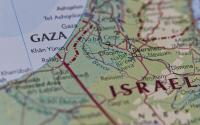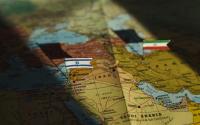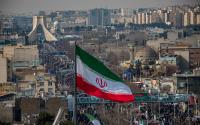8 December 2004
 Allegations of abuse at Abu Ghraib have rocked the US military |
Spokesman Lawrence DiRita said the four had been switched to other duties and could face a criminal investigation.
He said they had been punished for excessive use of force.
He was speaking after it emerged that interrogators from a different part of the US army had reported seeing members of the unit abusing Iraqi prisoners.
Memos obtained by the American Civil Liberties Union (ACLU), a civil rights group, detail the experiences of US Defence Intelligence Agency workers who were told to keep quiet about the alleged abuse.
The documents also show that special forces officers ignored FBI fears over their interrogation methods.
FBI and Defence Intelligence Agency concerns were ignored or brushed aside by special forces, says the ACLU.
The ACLU obtained the documents under the US Freedom of Information Act.
The memos were written in June, two months after photographs were published of abuse at the Abu Ghraib jail, near Baghdad.
At a Pentagon news briefing on Wednesday, Mr DiRita said four individuals had received "administrative punishments for excessive use of force - it in particular was emphasised it was the unauthorised use of Tasers".
He said he did not know what form the punishment had taken, but it would normally involve loss of pay and demotion to a lower rank.
Tense relations
According to the memos obtained by the ACLU, detainees held in Iraq often arrived at prisons, including Abu Ghraib, bearing "burn marks" on their backs.
The documents also shed light on a tense relationship between the US military hierarchy in Iraq and intelligence agents posted to the region.
Several documents detail specific concerns about the conduct of military personnel in Iraq.
One memo, from Vice Admiral Lowell E Jacoby, head of the Defence Intelligence Agency (DIA), describes how staff who complained about abuse were threatened, had their car keys confiscated and e-mails monitored, as well as being ordered not to leave the base or speak to friends or relatives in the US.
Another details an incident in which a prisoner was punched in the face by military personnel "to the point he needed medical attention".
Task force staff did not record the medical treatment and confiscated DIA photographs of the injuries, the memo says.
The ACLU disclosures follow reports that a senior FBI official complained in 2002 about "highly aggressive" interrogation techniques at the US camp at Guantanamo Bay.
"These documents tell a damning story of sanctioned government abuse - a story the government has tried to hide and may well come back to haunt our own troops captured in Iraq," Anthony Romero, executive director of the ACLU.
The Pentagon has said that at least eight major reviews and dozens of congressional hearings and briefings on the abuse issue have already been completed.
Seven US military police and an intelligence officer have been charged in connection with the abuse. One reservist has been jailed for his role.






